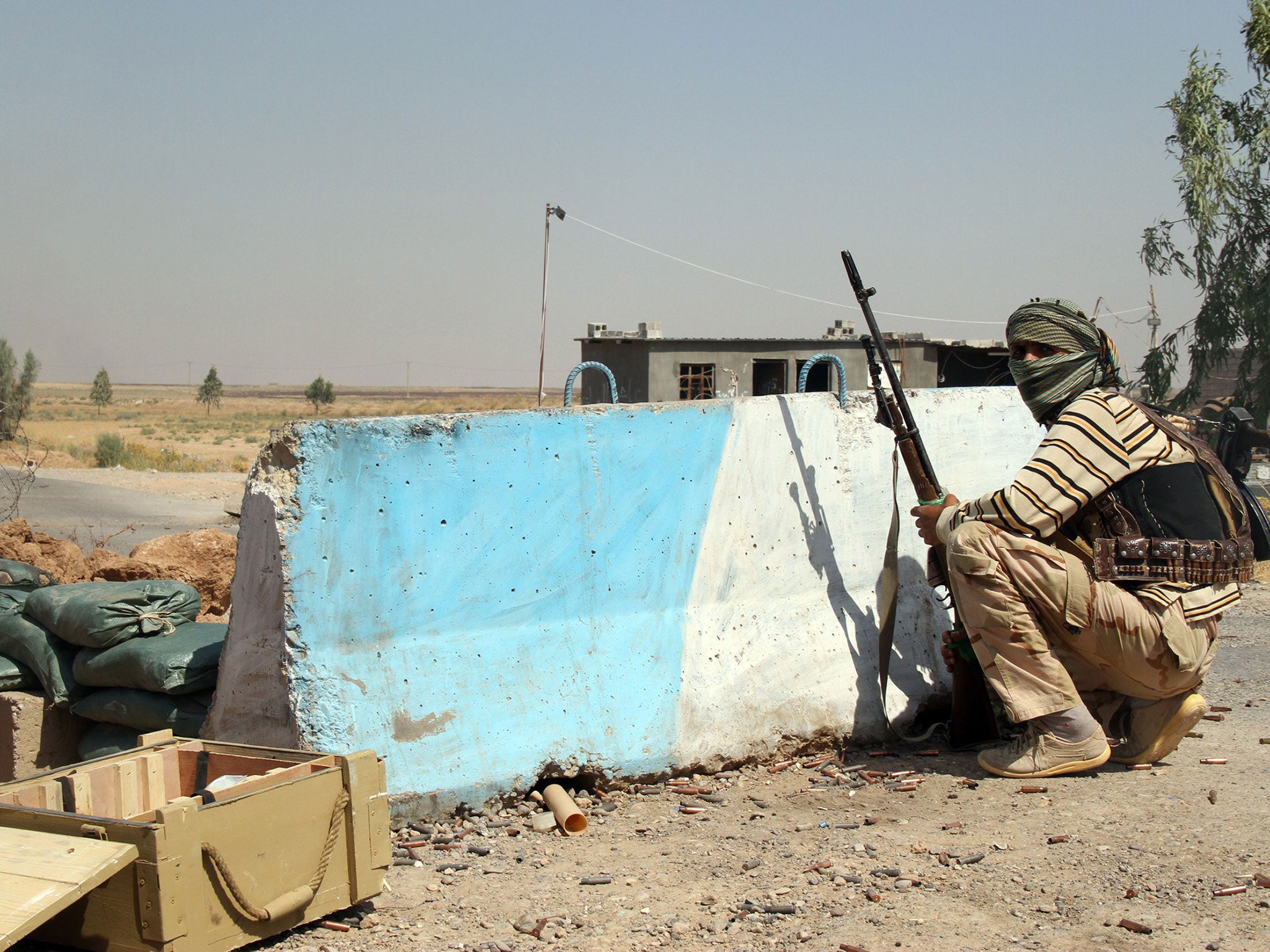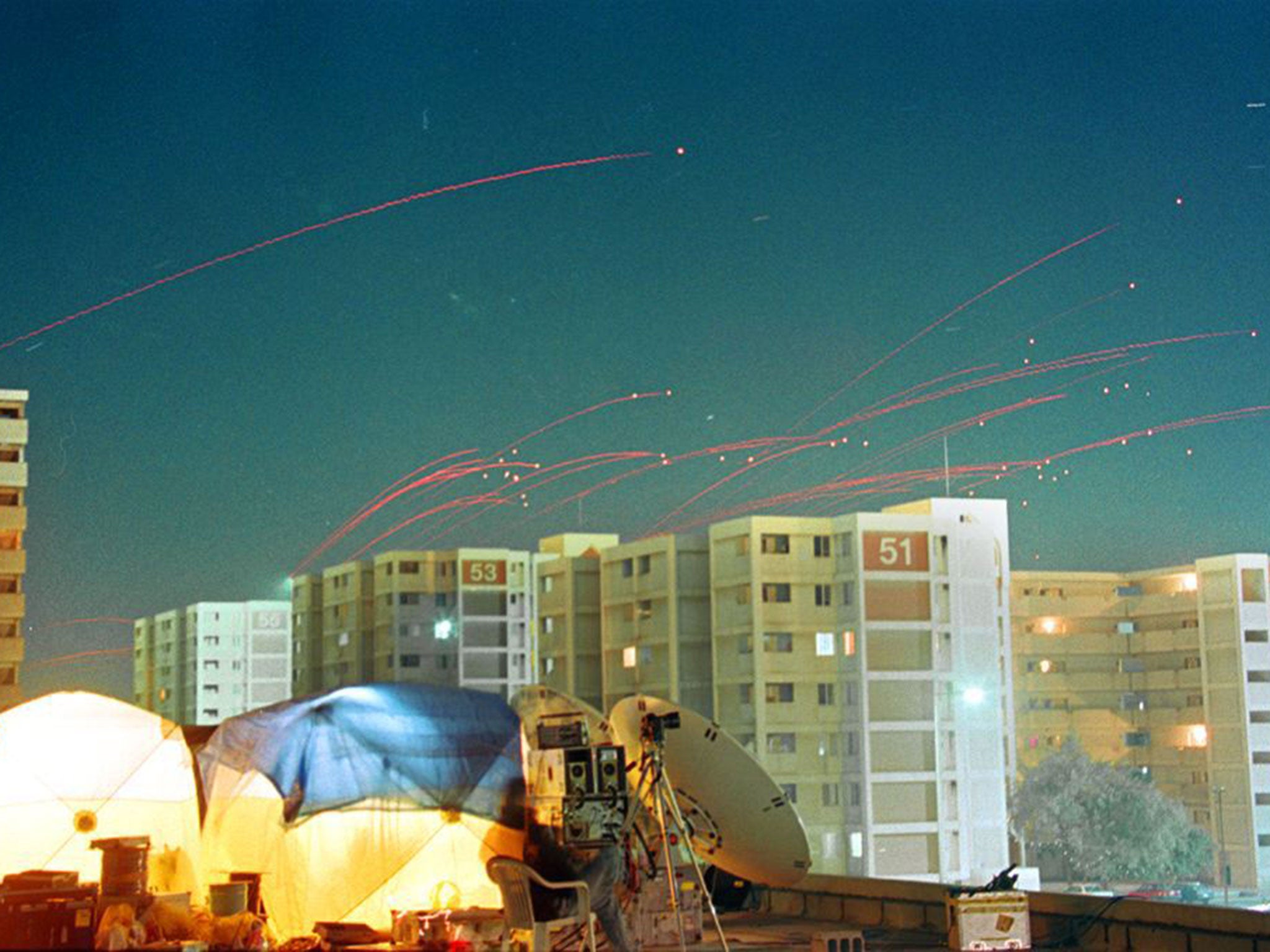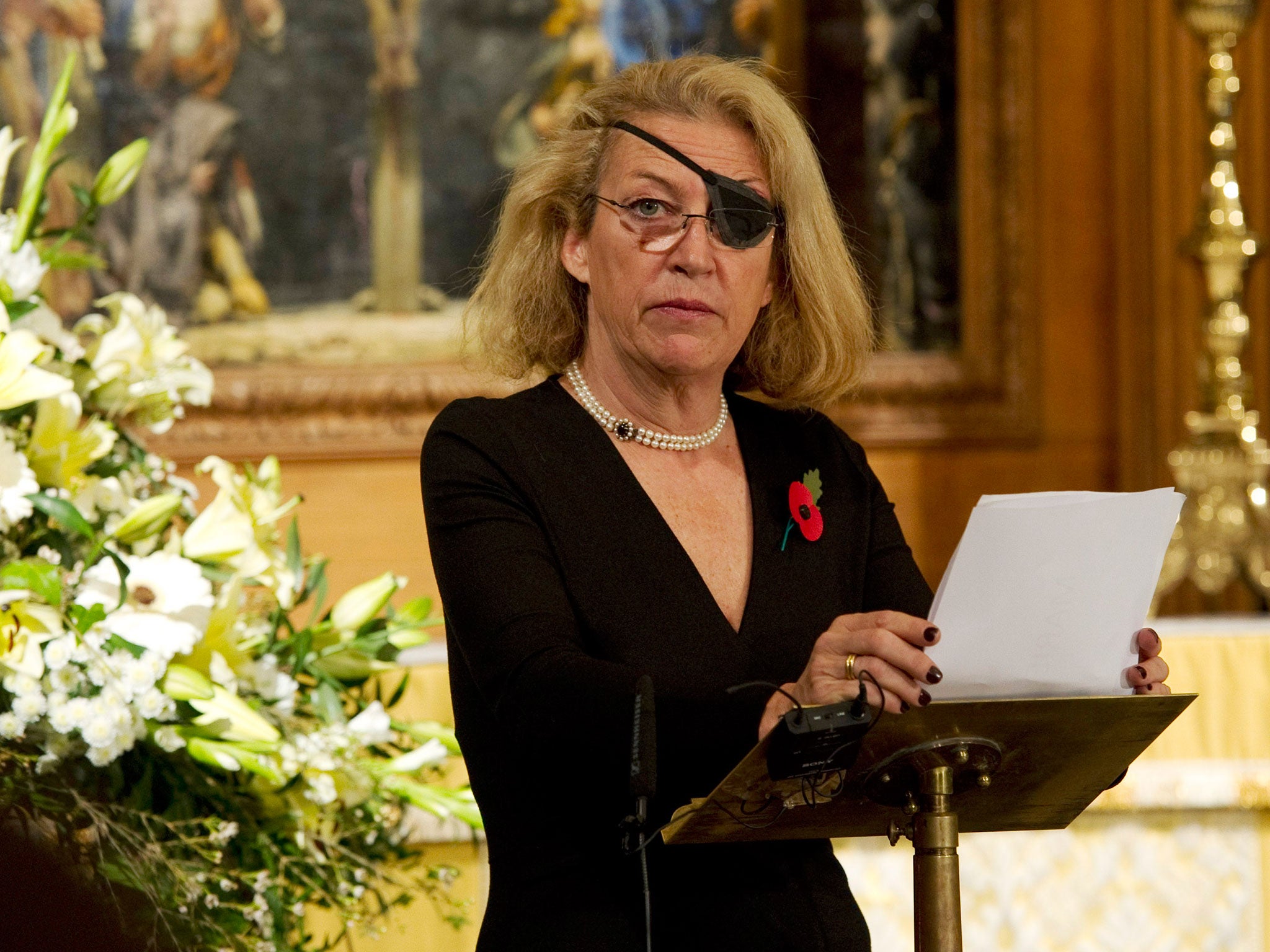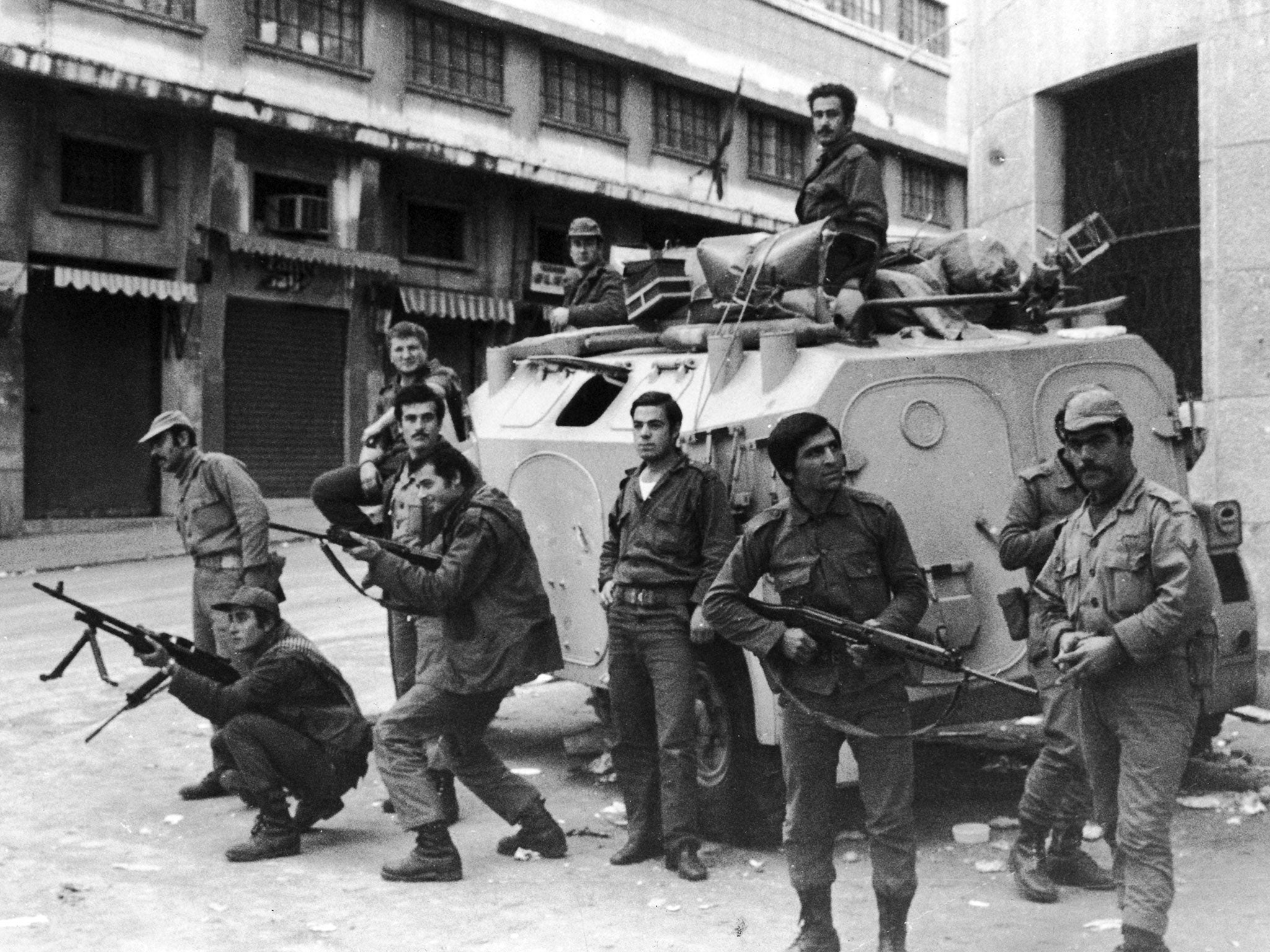The first draft of history: How war reporters get it wrong, and what they can do to get it right
Since 2001, Patrick Cockburn has provided peerless reporting of the wars that have torn apart the Middle East and created the conditions in which Al-Qaeda and Islamic State have grown and flourished. In the first of a series of excerpts from his new book, he combines eyewitness accounts of the battles for Afghanistan, Iraq, Syria, Libya and beyond with an explanation of what these conflicts have in common – and how they were reported or misreported at the time


Your support helps us to tell the story
From reproductive rights to climate change to Big Tech, The Independent is on the ground when the story is developing. Whether it's investigating the financials of Elon Musk's pro-Trump PAC or producing our latest documentary, 'The A Word', which shines a light on the American women fighting for reproductive rights, we know how important it is to parse out the facts from the messaging.
At such a critical moment in US history, we need reporters on the ground. Your donation allows us to keep sending journalists to speak to both sides of the story.
The Independent is trusted by Americans across the entire political spectrum. And unlike many other quality news outlets, we choose not to lock Americans out of our reporting and analysis with paywalls. We believe quality journalism should be available to everyone, paid for by those who can afford it.
Your support makes all the difference.War reporting is easy to do but very difficult to do really well. There is great demand for a reporter’s output during the fighting because it is melodramatic and appeals to readers and viewers. This is what I used to label in my own mind as “twixt shot and shell” reporting, and there is nothing wrong with it.
The first newspapers were published during the Dutch Wars with Spain, the Thirty Years War and the English Civil War at the beginning of the 17th century. People rightly want to know the latest news about momentous and interesting events such as wars, natural calamities and crime. But single-minded preoccupation with combat may be deceptive, because such exciting events are not necessarily typical; neither do they always tell one who is winning or losing the war.
I covered the overthrow of the Taliban in 2001 and the beginning of 2002, which was largely reported as a military victory by the anti-Taliban Northern Alliance, supported by US air strikes. Television viewers would have seen impressive pictures of exploding bombs and lines of dejected prisoners. But I followed the Taliban from Kabul to Kandahar and their villages outside the city and saw their forces retreating and breaking up without really being defeated. There was little serious fighting, but a lot of giving up and going home by Taliban fighters who had been told to do so by their commanders and who knew that they were bound to lose the war anyway.
At one moment, south of Ghazni, I accidentally drove through the Taliban front line, which had disintegrated. I nervously had to tell my driver to turn the car around and get back as quickly as possible without attracting attention to Northern Alliance positions. I kept thinking that I must have unaccountably missed the real fighting, but finally decided that there had not been much of it. This was important because if the Taliban had not been truly beaten, it meant they could make a comeback in the years to come – as indeed they did, with spectacular success.
There is a risk here of saying “I told you so” too vociferously, which does no good to the writer or reader. There is also an implied criticism of other reporters as shallow fellows who were caught up in the drama of war and failed to take the longer view. In practical terms, the journalist who spends so much time explaining the whys and wherefores of a conflict and neglects to cover the actual fighting will not hold his or her job for very long. War reporters are occasionally belittled in two wholly opposite ways: as either “hotel journalists,” cowering in their rooms while covering the action second-hand, or “war junkies,” tragic figures addicted to the excitement of armed conflict. The first accusation is easily disposed of since those reporters averse to being caught up in a conflict in which they might be killed – not an unreasonable attitude – take the elementary precaution of staying out of dangerous places such as Baghdad, Kabul, Beirut, Damascus, Tripoli and the like. As for the allegation that some reporters are “war junkies,” an intense interest in any professional speciality risks giving the impression that one is nursing an unhealthy obsession.
But in fact few correspondents are so enamoured with combat that they believe nothing else matters. A surprising aspect of wars since 2001 is that the journalists have often spent a much longer period of time in these countries than Western diplomats or officials. When Isis captured Mosul in 2014, the political section of the British embassy in Baghdad had just three junior diplomats on short-term deployment.
Of course, there may be a certain déformation professionnelle involved in the reporting of wars. When doing so in Afghanistan, Syria, Libya or Iraq, it is difficult not to convince oneself of the significance of whatever skirmish one is describing. This failing is almost impossible to avoid, because everybody is prone to exaggerate the importance of an event in which others are being killed. There is also a natural identification with those soldiers and militiamen, however thuggish and unsavoury, who are being shot at or shelled alongside oneself. Some, but not all, correspondents romanticise rebels who may be heroic defenders of their own communities but are quick to loot and kill when they advance beyond their home ground. All these factors combined in the early days of the uprisings in Libya and Syria to make rebel gunmen sound less sectarian and brutal than they really were. It was only in the first half of 2015 that there was a general admission that, ruthless though the Syrian government might be in barrel-bombing civilian areas, the armed opposition was by then almost entirely dominated by Isis and Jabhat al-Nusra, the al-Qaeda affiliate. Sympathetic reporting of rebel-held areas in Iraq, Syria and Libya largely died away because they had become too dangerous for any local or foreign journalist to visit without risking kidnapping or decapitation. As for government-held areas in Iraq and Syria, in the past the Ba’athist governments in both countries had always made a sort of fetish of their own brutality as a sign of loyalty and determination and regardless of civilian casualties. The Syrian government used the same gangster methods of assassination, bombings and indiscriminate shelling to rule Lebanon during its long occupation as it used against its own civilian population after 2011.

Reporting wars has become much more dangerous now than it was half a century ago. The first armed conflict I wrote about was in Belfast in the early 1970s, when I used to joke that newly formed paramilitary groups appointed a press officer even before they bought a gun. In the first years of the Lebanese Civil War after 1975, the different militias used to hand journalists formal letters telling their checkpoints to allow free passage. There were so many militias that I was afraid of mixing up the letters, which looked rather alike, and used to keep those from left-wing groups tucked into my left sock and those from right-wing groups into the right one.
This relationship broke down from 1984 as Shia fundamentalist groups began to see journalists as targets for abduction for ransom or as political bargaining chips. Iraq at the height of the sectarian warfare of 2006-07 was dangerous, although not as dangerous as it has since become. I used to have a second car tailing mine in Baghdad to see if I was being followed and would make sure the staff in my hotel were well-paid so they could tip me off if anybody was taking too great an interest in my activities. Friends and colleagues who have been killed, such as David Blundy in El Salvador in 1989 and Marie Colvin in Syria in 2012, were very experienced journalists. Once I had imagined that it would be young and over-enthusiastic freelancers trying to make their name who would be killed. In the event, it turns out to have been the veterans who lost their lives more frequently – not because they made any great mistakes, but because they went to the well too often, and got away with it so many times that they took one risk too many.

There is a peculiarity about these present wars that makes them difficult to report because the military activity is not all-out armed conflict. It is a sort of quasi-guerrilla warfare with strong political content, in which the most striking features are the religious fanaticism, cruelty and military expertise of Isis and other al-Qaeda-type groups that differ little from it in ideology and behaviour, such as Jabhat al-Nusra and Ahrar al-Sham. But it is important not to focus only on their attention-grabbing atrocities, but the striking weakness of their enemies, whether they are in Washington or Baghdad. The military prowess of Isis is less surprising than the speed with which the Iraqi army disintegrated in 2014 when attacked by far smaller forces.
Perhaps this should not have come as the shock that it did: in 2013 I had spent some months in Iraq on the 10th anniversary of the US invasion and decided that the government and army were saturated by corruption and wholly dysfunctional. The following year I had written extensively and begun a book on the growing strength of the extreme Sunni jihadis. Even so, I never conceived that Isis was going to capture Mosul and most of northern and western Iraq. I had forgotten a golden rule when predicting the future in Iraq, which is to forecast the worst possible outcome. This may take longer to happen than one had expected, but when it does occur will be far worse than one’s direst imaginings. Similarly pessimistic calculations made about Syria, Yemen and Libya in recent years would likewise have accurately forecast their present grim situation.

It is easy to be a professional pessimist over Iraq and much of the rest of the region, but I have tried to avoid this, sometimes in the face of the evidence. I have liked Iraqis since I first went to their country in 1977 and have always had close Iraqi friends. During that first visit it all looked very different as the country enjoyed one of its rare moments of peace. The Kurdish rebellion had temporarily ended following the 1975 Algiers Agreement, when Saddam Hussein did a deal with the Shah of Iran who, with the backing of the US, betrayed his former Kurdish allies. The country had a standard of living that was about the same as Greece, as oil revenues soared, and there were good administrative, education and health systems. Saddam was vice-chairman of the Revolutionary Command Council and had not achieved complete power. Still unknown were his capacity for extreme violence against his own people and his proneness to titanic miscalculations that would lead him to fight wars against Iran and the US that Iraq could not possibly win.
I had just been in Iran in 1980 when there were the first rumours that Saddam might invade, something I discounted at the time on the grounds that he would not do anything so foolish. I was wrong, but 10 years later, as Iraqi tanks were massing north of the Kuwait border, I had learned my lesson and believed that no act of megalomaniac folly was beyond him. (I knew a few of his senior advisers who were certainly aware of the likely consequences of attacking Iran or invading Kuwait, but I doubt if they ever expressed their misgivings. A Russian diplomat, who knew Iraq’s ruling circles well, once told me that the only safe course for a senior member of the regime was “to be 10 per cent tougher than the boss”. In other words, if Saddam said he was going to invade Kuwait, even his best-informed lieutenants might urge him to push on to Saudi Arabia. Iraqi leaders grotesquely misinformed about their military and political strength did not end with the fall of Saddam. Prime Minister Nouri al-Maliki, who presided over one of the biggest military debacles in history in 2014, continued to have himself pictured staring intently at a large map and addressing his generals like Napoleon before the battle of Austerlitz.)
Journalists are sometimes patronisingly congratulated for providing “the first draft of history”, though often the first draft is better than the last. There is credibility about eyewitness reporting before it has been through the blender of received wisdom and academic interpretation. Journalists are often over-modest about what they know, and their editors are even more so – ever nervous when their man or woman in the field is saying different things from some pundit they have just seen on television or read in an op-ed column. In the US such talking heads, who have the great advantage to TV stations of providing their services for free, are often the despair of journalists in the front line. One night in Baghdad in 1998, as American missiles exploded in central Baghdad and pieces of shrapnel from anti-aircraft fire rained down, I remember watching a journalist friend crawl outside to use a satellite phone. On his return I asked him why he had done such a dangerous thing and he explained wryly that his office in New York had told him to call some expert on Iraq at a think-tank in Washington to get their assessment of the US air strikes.
My newspaper, The Independent, never put me under any such constraints or questioned my judgement in any of these wars and conflicts. I used to sympathise with American colleagues in 2003 and again in 2008 who knew very well that the war in Iraq was not won, but were being confidently contradicted by their home offices. I recall in 2008 a correspondent for one US television network gloomily telling me he had not been on air for 60 days despite the ongoing violence because “New York is convinced that the war here is over”.
Of course, the war never ended in Iraq or any of the other countries covered in this book. This is one of the striking features of the present era: wars turn into bloody stalemates with no outright winners or losers, aside from the millions of civilians who are the victims. Political systems decay or are overthrown but nobody is strong enough to replace them. An Islamic cult motivates people so they are prepared to die for it in a way that is no longer true of nationalism or socialism. There is outrage at the atrocities and destructiveness of the Caliphate as its militants blow up the ancient buildings of Palmyra and cut off the head of the chief archaeologist. But as yet there is no sustained counter-attack to eliminate the Islamic State. When I was living in a disease-ridden and impoverished Afghan village north of Kabul covering the last days of the Taliban, they seemed like an exotic but temporary throwback with their treatment of women as chattels and their hatred of other Islamic sects. Instead, against all the odds, they turned out to be the harbingers of an embattled and violent future.
This is an extract from ‘Chaos and Caliphate: Jihadis and the West in the Struggle for the Middle East’ by Patrick Cockburn, published by OR Books, price £18. The discount code readers can use for 15 per cent off ‘Chaos and Caliphate’ is: INDEPENDENT
Join our commenting forum
Join thought-provoking conversations, follow other Independent readers and see their replies
Comments